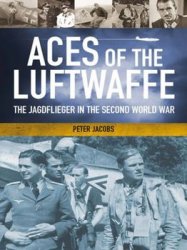1990-91 saw the beginnings of a power straggle at the top of the game. Relations between the FA and Football League had never been particularly warm, and when the League suggested that the game should be unified imder a single umbrella, the response amounted to exacdy tire opposite. The FA’s blueprint for the future was the establishment of a premier division. This would be the game’s gold standard, and would help to improve the fortunes of the national team. Unsurprisingly, the Football League was horrified at the prospect of the glamour clubs seceding in this way. They went to court to challenge the legality of the FA’s proposals but found they had no case.
The end of the UEFA ban
This season marked die end of the UEFA ban on English clubs, although Liverpool received a further year’s penalty. The 6-year ban was said to have put English football doivn die pecking order in relation to the other traditional powerhouses on the Continent. That didn’t stop Manchester United from Hfting the Cup Winners’ Cup. The 2-1 victory over Barcelona in Rotterdam must have been particularly pleasing for Mark Flughes. His brief spell at the Nou Camp had been a nightmare, and a superb winning goal from a narrow angle showed Barca what an in-form “Sparky” could do. This victory meant that Alex Ferguson joined a select group of managers to have won a European trophy with two different clubs.
Arsenal’s title
United had been deducted a point in the league following a brawl in their clash with Arsenal at Old Trafford in October. The Gunners were docked two points, but neitlier penalty proved cosdy in the shake-up. United finished 6th, while Arsenal still ended the campaign seven points clear of Liverpool at the top.
Liverpool had started the season the stronger, recording ten straight wins. The turning point came in a 5th round FA Cup-tie against Everton. After a goalless draw at Anfield, the two teams met at Goodison. The game ended 4-4, highlighting the fact that Liverpool were still potent up front but far from secure at the back. The following day Kenny Dalglish announced his resignation, citing the strain of the job. The man appointed in his place was an Anfield thoroughbred but he didn’t come from wnthin. Graeme Souness was persuaded to leave Rangers and take over the reins at the club he had captained with such distinction

Opposite top: Paul Gascoigne with Steve Sedgeley and Gary Mabbutt celebrating Spurs 3-1 victory over Arsenal in the semi-final of the FA Cup in 1991 played at Wembley. The following month Tottenham secured the Cup with a 2-1 win over Nottingham Forest.
Opposite middle: Spurs* Eric
Thorsvedt punches clear in the hard-fought contest that went into extra time.
Opposite bottom: Gary Mabbutt holds the trophy aloft.
Left: Steve Nicol, Bruce Grobbelaar and Ian Rush with the FA Cup in 1992.




 World History
World History









